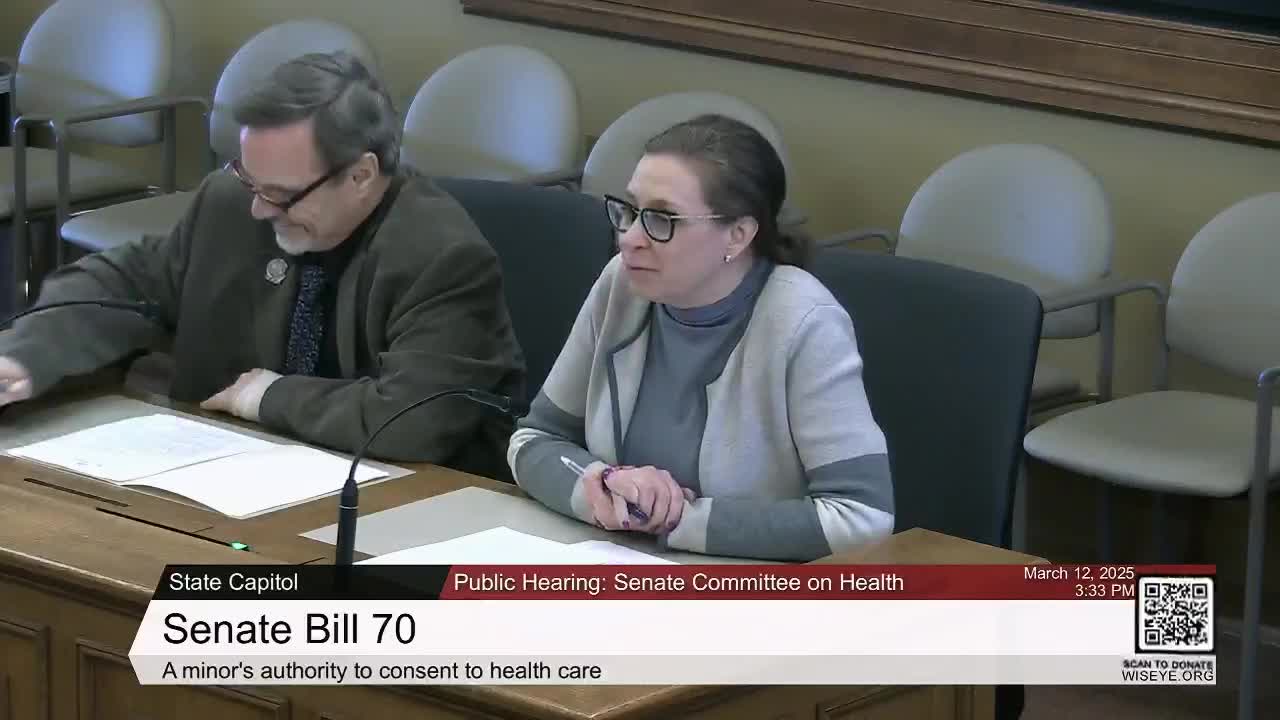Committee hears support for bill allowing unaccompanied minors to consent to medically necessary care
Get AI-powered insights, summaries, and transcripts
Subscribe
Summary
Senate Bill 70 would permit certain unaccompanied youth 14 and older to consent to medically necessary care when they lack a parent or guardian; advocates said the change would remove barriers encountered by homeless and unaccompanied youth.
A Senate committee heard testimony on Senate Bill 70, which would allow unaccompanied minors 14 and older to consent to medically necessary care when they lack a parent or guardian. Sponsors and advocates said the measure would close gaps that leave homeless and unaccompanied youth without access to routine and follow‑up medical services.
Senator Rachel Cabral Guevara told the committee that school data show more than 2,100 unaccompanied youth were identified in Wisconsin public schools in the most recent count and that roughly 18,000 school‑age children were identified as experiencing homelessness. Advocates from SchoolHouse Connection and the Wisconsin Association for Homeless and Runaway Services described state and federal certification procedures that would verify an unaccompanied youth’s status before clinicians provide care under the bill.
Rod, director of state policy for SchoolHouse Connection, testified the bill targets medically necessary care, not elective or cosmetic services, and noted that 35 other states and Washington, D.C., have enacted similar laws. He said the measure builds on Wisconsin’s 2019 law that allowed minors to consent to shelter services and said the proposed medical consent provision would be a logical next step.
Local providers and youth advocates gave examples of young people who faced long delays or outright denials when parents were unreachable. Justin Kearney, program manager at Briarpatch Youth Services, described a shelter client with panic attacks who was transported to an emergency room but could not be treated for two hours because staff could not reach the legal guardian.
Jessica Pfeiffer, a systems navigator for Project 1649 in Rock County, described a teenager who repeatedly suffered gallbladder attacks but could not receive removal surgery until age 18 because parental consent could not be obtained; she said the condition limited the youth’s work and schooling. Witnesses said the bill requires written certification from designated local liaisons, shelter intake staff or program directors before care is provided under the statute.
Supporters asked lawmakers to keep the bill focused on medically necessary care and emphasized that it would not displace parental authority when a parent or guardian is available.
Ending: The committee received broad support from homelessness and youth‑service organizations; no organized opposition was recorded during the hearing.
